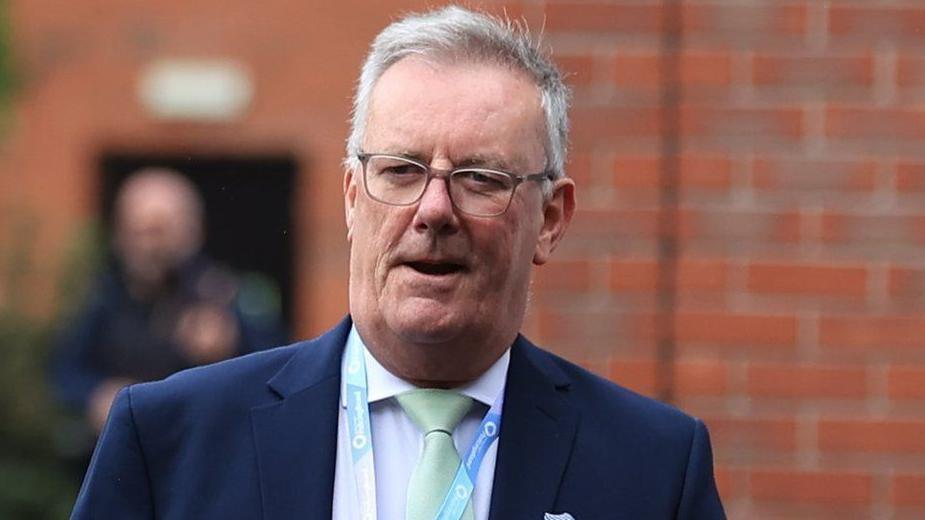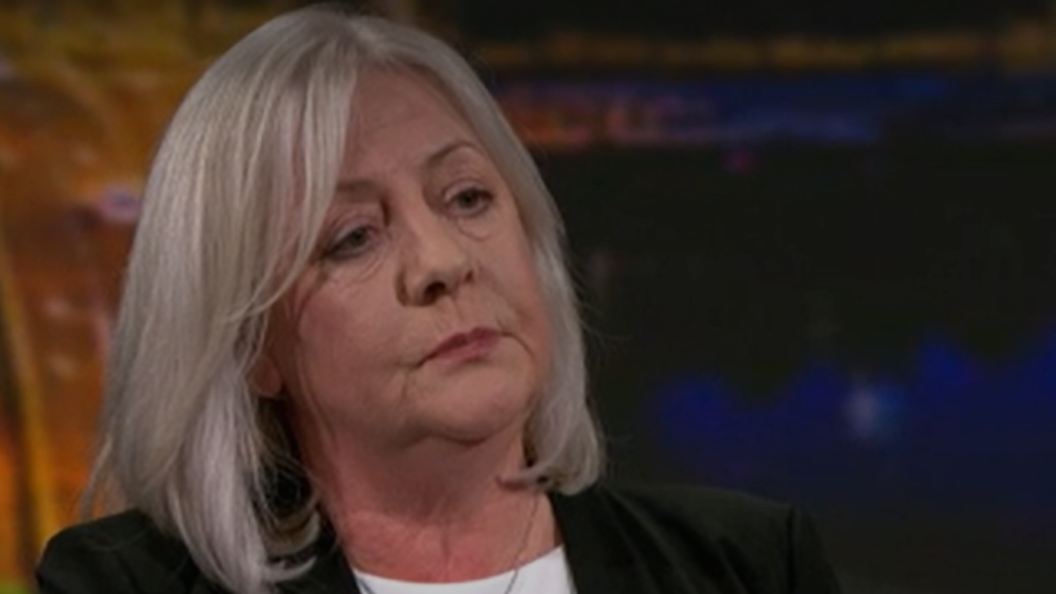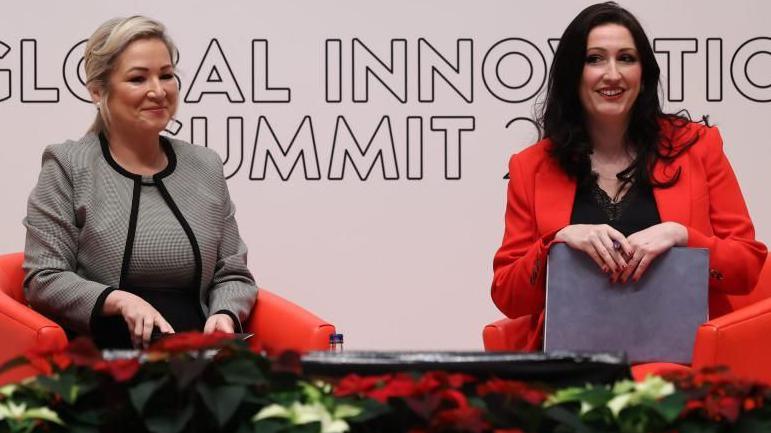Pay offer being considered by health unions

Health Minister Mike Nesbitt presented the pay offer to unions on Thursday
- Published
A pay offer aimed at avoiding industrial action by unions has been put on the table by Health Minister Mike Nesbitt.
BBC News NI understands a pay award backdated to this August is currently being considered by union representatives.
On Monday, Nesbitt said the latest allocation of money by the executive would not allow him to match pay deals in other parts of the UK.
Speaking after meeting Nipsa, Unite, and Unison, the minister said there had been constructive discussions.
"I put the plan to them and they accepted it as a serious proposal, but it is one they need to go away and think about and consult upon," he said.
"Equally, they have given challenges to me that I need to take to executive colleagues, beginning with the first and the deputy first minister, and I will do that at pace.
"What we are in now is a process. I think now everyone recognises that the resolution to this will require an all-executive approach, and that is to all public sector pay, not just health,"

Carmel Gates, said: "We are beginning discussions with members tomorrow to prepare for action"
Carmel Gates, from NIPSA, said her union is not discussing the details from a meeting between unions and the health minister on Thursday, but still plan on talking to their members about a possible strike.
Speaking on BBC's The View programme, Ms Gates, said: "We are beginning discussions with members tomorrow to prepare for action because unless the offer that is coming to us is at least parity with colleagues in Britain, then it is not going to be good enough."
Rita Devlin of the Royal College of Nursing said: "We are in a better place than we were yesterday, but we’re not there yet.
"I would not be recommending it to my members at this time."
She said that while no-one wanted to take industrial action, “every single year we fight for crumbs off the table to try to make sure that our members get the money that they deserve”.
The BMA said in July this year, the Doctors’ and Dentists’ Pay Review Body (DDRB) recommended an uplift of 6% for all doctors, and this had already been applied in the rest of the UK.
Its Northern Ireland council chair Dr Alan Stout said the minister had told the BMA he was not in a position to make the full pay award.
"On behalf of all doctors in Northern Ireland, I made it clear this was totally unacceptable," Dr Stout said.
"I will now meet with the chairs of all the BMA branch of committees in Northern Ireland to seek their views on how to proceed.
“The scale of anger and outrage I have been hearing over the course of the last week is unprecedented. Doctors here are totally disillusioned with the Department of Health and its attitude towards doctors’ pay."
Analysis: Conversations continue over pay
by Aileen Moynagh, BBC News NI health reporter
Neither the health minister nor most health unions would comment on the details of this morning's pay meeting.
But BBC News NI understands the proposal from Mike Nesbitt would restore pay parity with England and Wales - but not full pay parity.
What this interim offer means is that pay for health workers would be backdated to August and not April like England and Wales, at this stage.
It's understood Nesbitt has committed to working with the Northern Ireland Executive in a bid to find money to bridge the gap, with the aim of fully restoring pay parity if possible.
Conversations and negotiations continue.

The first and deputy first minister said the executive has to work within the budget
Hope for a positive resolution - O'Neill
Earlier, First Minister Michelle O'Neill said that a winter of strike action by various unions in Northern Ireland over pay is “not inevitable”.
On Wednesday, unions representing teachers said they will also ballot their members on strike action.
O’Neill said she hoped there could be a “positive resolution”.
“We also have been faced with the fact they’ve settled pay in England but not here, we’ve allocated 57% of the budget this week to health,” she added.
Stormont budget
O’Neill said she and the Deputy First Minister Emma Little-Pengelly met the health minister on Wednesday night, ahead of his discussions with the unions.
Little-Pengelly said the executive had to “work within the budget” it had.
“A certain amount of funding has to go towards funding those frontline services, that is a finite amount of money,” she said.
“The executive will be doing their best that is our promise.”
O'Neill said that it's a "challenging situation" and the the executive does not want workers to go on strike.
"We will work to find solutions. I don’t think anything’s inevitable, we will work night and day to make sure we can get a positive resolution."